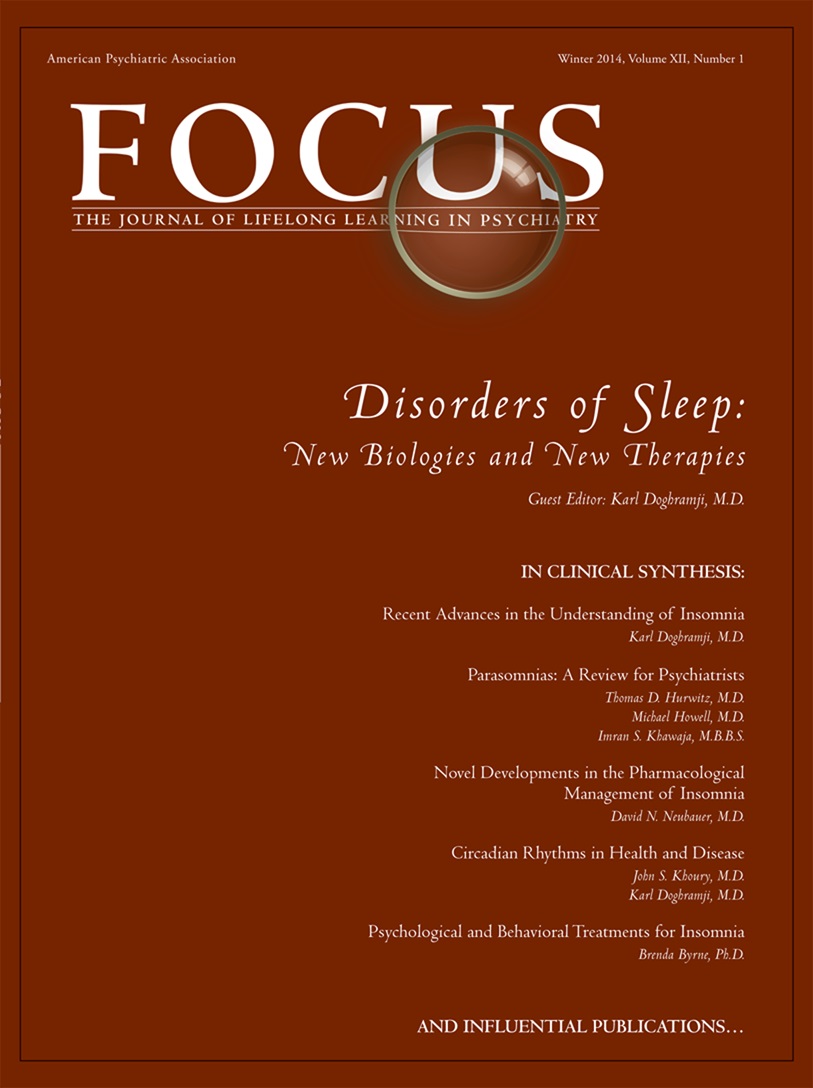“My patient is interested in natural products for treating insomnia. Are there any, and do they work?”
Reply from Milton K. Erman, M.D.
It is understandable that “natural” products, if available, are a desirable option, whether we are considering choices of foods, medications, fabrics, etc. The term “natural” implies an absence of “artificial” ingredients or origins, and suggests a unity with natural processes. Given the option (at the same cost) of organic, free-range chicken as opposed to chicken raised in a factory farm, who would not choose the “natural” product?
Similarly, assuming that we felt the need to use a sleep aid, it is understandable that we would prefer to take (or prescribe) a “natural” product, if available. Obviously, there are larger questions to be answered in such a decision. What are these agents, and are they as effective and safe as “artificial” (pharmaceutical) compounds tested and approved by the U.S. Food and Drug Administration (FDA)?
Melatonin is probably the agent that is most widely used as a perceived “natural” treatment for insomnia. Melatonin is in fact a naturally occurring mammalian hormone produced by the pineal gland in the brain. Its release is regulated by light exposure, modulated through the hypothalamus with direct connections to the eyes (the retino-hypothamaic tract) and is often described as a “lights-off” hormone.
Melatonin is NOT a sleep-promoting hormone and the FDA does not accept it for use as a hormone replacement or medication. It is categorized by the FDA as a “dietary supplement.” Thus, because it is not considered to be a drug, it is not recognized by the FDA as appropriate for the treatment or prevention of a disease. As a supplement, it does not require premarket review or approval by the FDA. Its status as a dietary supplement allows it to be made available for sale to consumers without any of the testing for safety or efficacy that would be required if it was treated as either an over-the-counter (OTC) or prescription medication.
If it is not a sleep-promoting hormone, how might the use of melatonin improve sleep? Melatonin levels are known to decrease with age, beginning in childhood and continuing to fall throughout life. It has been suggested by Richard Wurtman that “an age-related “melatonin deficiency state” promotes insomnia in some older people, and that this insomnia can be treated with melatonin (
1).
Such an argument has not yet been accepted by the FDA in the United States, but regulators of the European Medicines Agency in 2007 approved the use of a timed-release melatonin product for insomniacs aged 55 and over. The beneficial effects of melatonin were seen primarily on perceived sleep quality and next day alertness (
2–
4). The safety of long-term administration of melatonin has not been fully addressed, but does not appear to be a major concern (
1,
5).
“Botanicals” historically used to treat insomnia have included valerian root and chamomile. The herb valerian has been used to treat sleep problems dating back to ancient Greece and Rome, and was cited by Galen as a treatment for insomnia. Although valerian has often been promoted in the herbal literature as a sedating and sleep-promoting agent, efforts to define a clear and predictable hypnotic effect, or to isolate an active ingredient that can promote sleep have been inconclusive (
6,
7). Long-term safety data are not available.
Like valerian, chamomile is a traditional herbal remedy, often prepared as a tea to promote sleep. Chamomile is sold in the form of tea, extract, and topical ointment. Chamomile is widely available in health food stores and supermarkets. Chamomile’s effectiveness as a sleep aid has not been demonstrated in humans, and safety concerns include a capacity to cause uterine contractions, which can lead to miscarriage.
Cannabis is clearly a widely used “herbal” product, although not typically thought of as a hypnotic agent. However, patients with chronic insomnia complaints may report that cannabis is of benefit in promoting and sustaining sleep. Although little human data exists supporting the efficacy of cannabis as a treatment for insomnia, animal data (
8) suggests it has sleep-promoting effects in rats. The capacity of withdrawal from marijuana to promote sleep disturbance is widely recognized (
9). Long-term safety remains uncertain and controversial at best.
Finally, it should be emphasized that there are extremely effective “natural” treatments for insomnia utilizing techniques of sleep hygiene and cognitive behavior therapy for insomnia (CBTI). This topic is reviewed by Dr. Brenda Byrne in this issue of
Focus. A Standards of Practice Committee of the American Academy of Sleep Medicine (
10) discussed these techniques in detail in the management of chronic insomnia in adults.

